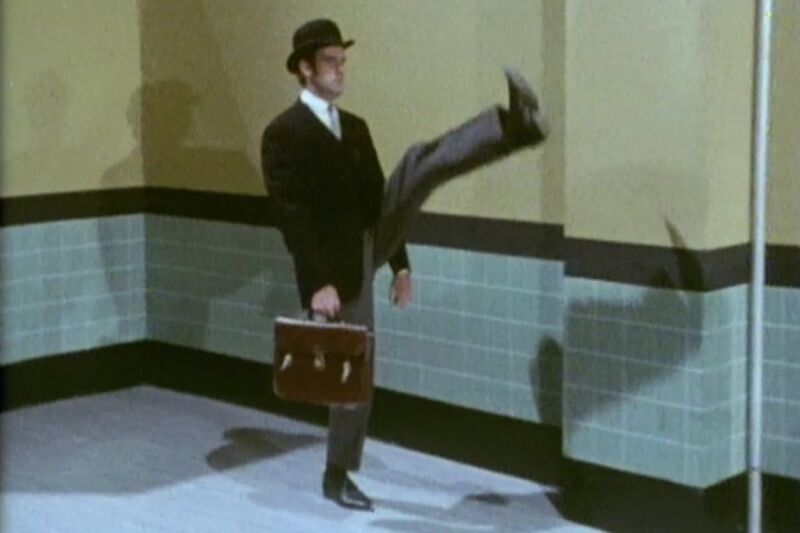Monty Python paves way for a healthier and sillier you
Replace that leisurely stroll with a ‘silly’ walk and feel better for it.

Key Points
Researchers ask participants to walk like characters in the famous Monty Python ‘silly walks’ sketch.
Findings include that inefficient walking has cardio and health benefits.
Humans have become so efficient at walking, a silly walk can boost fitness potential.
Remember the Ministry of Silly Walks? It may be a classic comedy sketch from 1970, but it’s become the subject of serious research that could improve our health and wellbeing.
The sketch from the 1960s-70s British TV comedy Monty Python’s Flying Circus remains a favourite dinner party game for many Baby Boomers worldwide – usually after the third glass of port.
In the skit, the hilariously inefficient walking styles of Mr Teabag (John Cleese) and Mr Putey (Michael Palin) are examined – but there is no measurement of the energy used to create their unusual gaits.
To fill this vital gap, a team of American researchers set out to compare the energy expenditure of low-efficiency walking with high-efficiency walking. In other words, they measured the health benefits of walking silly.
According to the study, participants who imitated the Cleese’s lurching, high-kicking, comedic walk more than doubled the energy expenditure of those taking a more typical stroll.
The research published in the Christmas issue of The BMJ, a British medical journal, shows that Mr Teabag’s silly walk rises to the level of vigorous-intensity exercise.
“The major finding really is that Mr Teabag’s walk is two-and-a-half times more inefficient than normal walking,” research lead Siddhartha Angadi said. “We already knew that the walk was 6.7 times sillier (more variable) than typical walking, but this suggests that one way to improve fitness is to walk like Mr Teabag.
“In fact, for a substantial number of people this would not only qualify as vigorous exercise but might help improve cardiorespiratory fitness.”
The findings are based on data from 13 healthy adults (six women, seven men) aged 22-71 years with no history of heart or lung disease, and no known gait disorder.
The participants tested the silly walking styles of Mr Teabag and Mr Putey. However, only Mr Teabag’s silly walk (a high goose step, then a side leg and a deep lunge with your feet wriggling like a fish out of water) resulted in a significantly greater energy expenditure – about 2.5 times that of usual walking.
This resulted in increased oxygen uptake and exercise intensity.
The study showed that physical activity recommendations for adults can be met by exchanging a mere 11 minutes a day of regular walking with Mr Teabag’s silly walk.
Surprisingly, the study shows that because humans have become so efficient at walking, a variation in gait is needed to boost the fitness potential. The “silly walk” actually qualifies as “vigorous exercise”.
In this case, inefficiency is a beneficial thing. The advantage of walking Teabag-style is that you can meet guidelines for vigorous activity with as little as 11 minutes per day. This can reduce your risk of mortality from several chronic diseases such as heart disease and cancer.
And what about the adage that laughter is the best medicine?
“Inefficiency à la Monty Python has the added benefit that it’s hilarious for the onlooker, too,” Professor Angadi said.
“Laughter is terrific medicine and has been shown to lower blood pressure, [and] improve vascular function, pain tolerance and vascular stiffness. What other public health intervention can boast of healthful effects in the user and the non-user?”
Emphasising the importance of safety, Prof Angadi notes that those who lack the flexibility to perform Mr Teabag’s walk should scale it down and just avoid walking in boring straight lines.
As the Pythons might say, it’s “something completely different” that could do wonders for your health.
For further reading: University of Virginia, Great Walks







